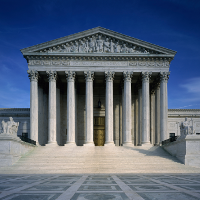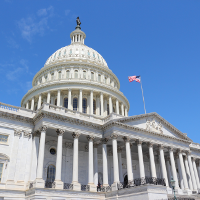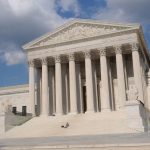 CPIP has published a new policy brief celebrating the fortieth anniversary of the Diamond v. Chakrabarty decision, where the Supreme Court in 1980 held that a genetically modified bacteria was patentable subject matter. The brief, entitled Forty Years Since Diamond v. Read more
CPIP has published a new policy brief celebrating the fortieth anniversary of the Diamond v. Chakrabarty decision, where the Supreme Court in 1980 held that a genetically modified bacteria was patentable subject matter. The brief, entitled Forty Years Since Diamond v. Read more
Tag: “patent trolls”
New CPIP Policy Brief: The Long Shadow of the Blackberry Shutdown That Wasn’t
 CPIP has published a new policy brief by CPIP Senior Fellow for Innovation Policy Jonathan Barnett entitled The Long Shadow of the Blackberry Shutdown That Wasn’t. The policy brief looks at how the Blackberry litigation and the “patent troll” narrative ultimately contributed to the Supreme Court’s 2006 decision in eBay v. Read more
CPIP has published a new policy brief by CPIP Senior Fellow for Innovation Policy Jonathan Barnett entitled The Long Shadow of the Blackberry Shutdown That Wasn’t. The policy brief looks at how the Blackberry litigation and the “patent troll” narrative ultimately contributed to the Supreme Court’s 2006 decision in eBay v. Read more
“No Combination Drug Patents Act” Stalls, but Threats to Innovation Remain
 By Kevin Madigan & Sean O’Connor
By Kevin Madigan & Sean O’Connor
This week, the Senate Judiciary Committee was to mark up a bill limiting patent eligibility for combination drug patents—new forms, uses, and administrations of FDA approved medicines. While the impetus was to curb so-called “evergreening” of drug patents, the effect would have been to stifle life-saving therapeutic innovations. Read more
Department of Justice Recognizes Importance of Reliable Patent Rights in Innovation Economy
 It is undeniable that the patent system has been under stress for the past decade, as courts, regulators, and even the Patent Office itself (as the newly confirmed Director Andrei Iancu has acknowledged) have sowed legal uncertainty, weakened patent rights, and even outright eliminated patent rights. Read more
It is undeniable that the patent system has been under stress for the past decade, as courts, regulators, and even the Patent Office itself (as the newly confirmed Director Andrei Iancu has acknowledged) have sowed legal uncertainty, weakened patent rights, and even outright eliminated patent rights. Read more
CPIP Co-Founder Testifies at House Judiciary Committee Hearing on IP
 CPIP co-founder Adam Mossoff testified on June 13 before the House Judiciary Committee’s subcommittee on the Courts, Intellectual Property and the Internet. He and other witnesses testified about the impact of the Supreme Courts recent decision in TC Heartland LLC v. Read more
CPIP co-founder Adam Mossoff testified on June 13 before the House Judiciary Committee’s subcommittee on the Courts, Intellectual Property and the Internet. He and other witnesses testified about the impact of the Supreme Courts recent decision in TC Heartland LLC v. Read more
Lobbyists Continue to Invoke Discredited Junk Science to Push Patent Legislation
 It seems no matter how many times the mole gets whacked, it keeps popping back up. The latest incarnation of this problem is a recent op-ed by Katie Johnson of the National Association of Realtors, which relies on a long since discredited study about the state of patent litigation in the United States. Read more
It seems no matter how many times the mole gets whacked, it keeps popping back up. The latest incarnation of this problem is a recent op-ed by Katie Johnson of the National Association of Realtors, which relies on a long since discredited study about the state of patent litigation in the United States. Read more
CPIP Scholars Ask Supreme Court to Resist Call to Restrict Venue Choices for Patent Owners
 On March 8, 2017, CPIP Scholars Adam Mossoff, Devlin Hartline, Chris Holman, Sean O’Connor, Kristen Osenga, & Mark Schultz joined an amicus brief in TC Heartland v. Kraft Foods. CPIP Scholars worked with USD Law’s Ted Sichelman to organize, write, and file the brief. Read more
On March 8, 2017, CPIP Scholars Adam Mossoff, Devlin Hartline, Chris Holman, Sean O’Connor, Kristen Osenga, & Mark Schultz joined an amicus brief in TC Heartland v. Kraft Foods. CPIP Scholars worked with USD Law’s Ted Sichelman to organize, write, and file the brief. Read more
Law Professors & Economists Urge Caution on VENUE Act in Letter to Congress
Today, 28 law professors, economists, and political scientists from across the nation submitted a letter to Congress expressing serious concerns about the recent push for sweeping changes to patent litigation venue rules, such as those proposed in the VENUE Act. The letter is copied below, and it can be downloaded here: http://ssrn.com/abstract=2816062 Read more
Do As I Say, Not As I Do: Google’s Patent Transparency Hypocrisy
 It is common today to hear that it’s simply impossible to search a field of technology to determine whether patents are valid or if there’s even freedom to operate at all. We hear this complaint about the lack of transparency in finding “prior art” in both the patent application process and about existing patents. Read more
It is common today to hear that it’s simply impossible to search a field of technology to determine whether patents are valid or if there’s even freedom to operate at all. We hear this complaint about the lack of transparency in finding “prior art” in both the patent application process and about existing patents. Read more
Changes to Patent Venue Rules Risk Collateral Damage to Innovators
 Advocates for changing the patent venue rules, which dictate where patent owners can sue alleged infringers, have been arguing that their remedy will cure the supposed disease of abusive “trolls” filing suit after suit in the Eastern District of Texas. This is certainly true, but it’s only true in the sense that cyanide cures the common cold. Read more
Advocates for changing the patent venue rules, which dictate where patent owners can sue alleged infringers, have been arguing that their remedy will cure the supposed disease of abusive “trolls” filing suit after suit in the Eastern District of Texas. This is certainly true, but it’s only true in the sense that cyanide cures the common cold. Read more

